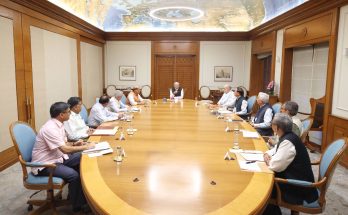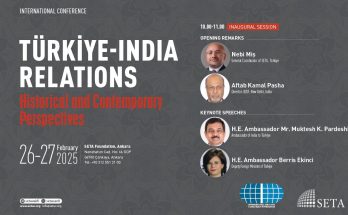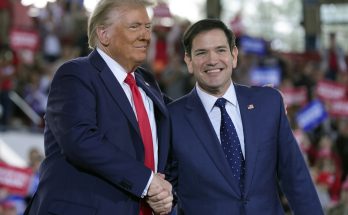Sending out a strong message to the developed countries, India has warned that any attempt to rewrite or overwrite the United Nations Framework Convention on Climate Change (UNFCCC) “will not be acceptable to anybody. The COP 21 in Paris had entered the crucial high-level talks segment to reach a deal on climate change that is acceptable to all. In a statement ahead of the ministerial meeting on December 7, India’s Environment and Forest Minister Prakash Javadekar said. Mr Javadekar had said: “UNFCCC is a global climate constitution. It is fundamental. Any attempt to rewrite or to overwrite will not be acceptable to anybody. Our collective decision should be based on Science, CBDR (Common But Differentiated Responsibility) and Collective Conscience.”
Focusing on larger issues, India emphasised on how to make the rich countries pay USD 100 billion every year starting with 2020, to help the developing countries cope with and plan ahead for the global warming. At present only around USD 10 billion has been pledged since 2009 in COP15 when the green fund was launched with much fanfare.
India’s position and principles
“India is determined “not to make Paris summit like past summits where we all returned home with false optimism and fictitious hopes”, said Mr Javadekar. “For India it is a question of present and future lives of our 1.27 billion people with aspirations to develop”. “We will not let this meeting fail to reach its objectives,” he added.
As far as India is concerned, it has already stated that the transparency and accountability regime that developed nations want to include in the deal should not treat rich and poor nations alike.
Working towards the status of current emissions of developing nations such as India and China, the US in particular is believed to be pushing for doing away with the concept of “historical responsibility.” Contrary to the requirement under the UNFCC, the US wants the Paris text to specify the concept of “collective” responsibility and also wants developing nations to contribute to the climate funds in future.
The CBDR, finance and technology transfer remain key issues on which India’s views differ radically from the developed countries. Apart from these points, India is working on issues such as whether individual countries’ climate actions should be subject to uniform scrutiny and assessment. India was “ready and committed to work with the French Presidency which has done a monumental job over the last one year to build political momentum, according to Mr Javadekar
India’s position
Summing up India’s position on the issue, Mr Javadekar said: “At the same time, India is here to ensure that seminal principle of CBDR is respected, and India is here to ensure that Rich countries pay back their debt for overdraft that they have drawn on the carbon space”.
With India being pressurised to drastically cut down fossil fuel consumption, India has decided to fight for its carbon space in Paris. Elaborating that India wants the world to act with urgency on the issue of climate change, Prime Minister Narendra Modi was specific that “the extent of their commitment and the strength of their action must be consistent with the carbon space they occupy” and that developed countries “must leave enough of what is left of our carbon space to let developing countries grow”.
Hoping to bring the world together for a next-generation agreement to tackle climate change, the overarching aim of the COP21 is to cap the rate of global warming at 2 degrees Celsius.
Author Profile
- India Writes Network (www.indiawrites.org) is an emerging think tank and a media-publishing company focused on international affairs & the India Story. Centre for Global India Insights is the research arm of India Writes Network. To subscribe to India and the World, write to editor@indiawrites.org. A venture of TGII Media Private Limited, a leading media, publishing and consultancy company, IWN has carved a niche for balanced and exhaustive reporting and analysis of international affairs. Eminent personalities, politicians, diplomats, authors, strategy gurus and news-makers have contributed to India Writes Network, as also “India and the World,” a magazine focused on global affairs.
Latest entries
 India and the WorldJune 26, 2025Operation Sindoor: India Sheds Restraint, Rediscovers Utility of Force
India and the WorldJune 26, 2025Operation Sindoor: India Sheds Restraint, Rediscovers Utility of Force India and the WorldJune 23, 2025BRICS summit in Rio to focus on Global South, local currency trade
India and the WorldJune 23, 2025BRICS summit in Rio to focus on Global South, local currency trade Africa InsightsJune 11, 2025New Opportunities in India-Japan Cooperation in Africa
Africa InsightsJune 11, 2025New Opportunities in India-Japan Cooperation in Africa India and the WorldMay 23, 2025Post-Operation Sindoor, India reminds Turkey, China of concerns and sensitivities
India and the WorldMay 23, 2025Post-Operation Sindoor, India reminds Turkey, China of concerns and sensitivities








